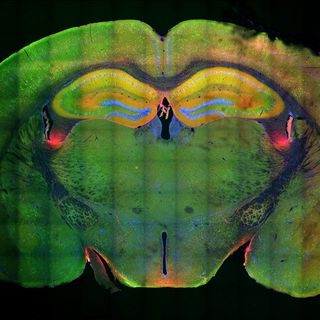October 19, 20205 min read, 1052 words
Published: October 19, 2020 | 5 min read, 1052 words
Explore:Explore:Explore:Neuroscientists discover a molecular mechanism that allows memories to formSarahMcDonnell617-253-8923617-258-8762MIT News OfficeWhen the brain forms a memory of a new experience, neurons called engram cells encode the details of the memory and are later re...
CRITIC REVIEWS
Well Sourced
October 19, 2020
Very nice piece of science reporting. And really, what you would expect from the publishing outlet of such a vaunted institution. Reads quite a bit like listening in to a conversation among the scientists and researchers cited. Excellent quoting, commentary, sourcing, and running commentary by the Author. The included graphic is a plus and helps in providing context and a visual point of reference. The links provide for further reading and are definitely worth a look-see. This is the type of science write-up that one would think interests nearly everyone. We all have memories. Although, things do get a bit fuzzy the morning after a few drams of single malt the night before. A worthwhile read and investment of time. Four point five stars!
October 19, 2020
PUBLIC REVIEWS
Investigative
October 19, 2020
Fascinating look at how memories are made. Article does a great job explaining what is already known about memory formation, and how the study findings presented here expand further on our understanding of this process. My favorite part was reading the detailed explanation of the study itself, which was able to actually "mark" or tag memories in mice as they were being formed, and see where in the brain these memories end up residing. Very cool & accessible scientific analysis, without being too technical.
October 19, 2020
Great Context
October 19, 2020
Wow, what an interesting article and scientific discovery. I'm no expert in brain or neuron activity, but this article seems credible in its reporting. The only reason this article didn't receive a perfect 5 stars is that it fails to mention why this discovery is new and why researchers hadn't discovered this mechanism before. I wouldn't like more background on which aspects of this research are brand new and why they are just now being discoverd.
October 19, 2020
